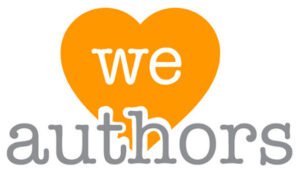Revised payment methods for Kindle Owners Lending Library and Kindle Unlimited, like other Amazon services, are author and reader friendly, argues Orna Ross
 “Now will you admit that Amazon is no friend to authors?” said my book-loving friend, who had telephoned me from Ireland for a chat. He’d heard a writer on Irish radio talking about what he called “Amazon attack on author incomes”.
“Now will you admit that Amazon is no friend to authors?” said my book-loving friend, who had telephoned me from Ireland for a chat. He’d heard a writer on Irish radio talking about what he called “Amazon attack on author incomes”.
“You know, whenever I see what the media writes and says about Amazon,” I said, “I wonder if the information I’m getting about other topics is as skewed and inaccurate.”
“But this poor writer’s income had been totally decimated, overnight. On a whim. They are only paying writers for the number of pages read now, instead of the whole book. Aren’t you worried?”
Sigh.
I do understand that most people outside our business (and some within) are not au fait with the difference between a reader buying an ebook on Amazon vis a vis borrowing it via Kindle Owners Lending Library (KOLL), or downloading it as part of their Kindle Unlimited (KU) subscription. [Details on these differences, from a writer’s perspective, here, if you’d like to know more]
But this wasn’t an honest misunderstanding. This was, once again, a wide strand of the press and reading public refusing to let facts inform the latest chapter in their “Amazon Is A Scary Monster” story.
My friend is a reader who resents ebooks and his determination to diss Amazon over this latest move was echoed in media, old and new, across the world — UK daily newspapers right-wing ( The Telegraph) and left The Guardian, culture press USA (The Atlantic), business press (Canada Business), tech reporting (Gismodo Australia), not to mention among authors online. In all of these articles, and hundreds more, errors, fallacies, and miscalculations flew, laced with howls of protest from self-interested authors.
They confused sales with borrows, did calculations that overlooked how KENP (Kindle Edition Normalized Page) counts are higher than print page counts, overlooked the leap in the global fund from $3 million to $11 million; and generally assumed bad motives and outcomes.
It was left to author blogs (see Hugh Howey and Catherine Ryan Howard ) and the ever-thoughtful publishing commentator, Porter Anderson, to keep the record accurate.
So Why All The Negativity?
You could put it down to the negativity bias to which, psychologists tell us, we are all prone — do you pay more attention to a good review or bad? — but it’s more than that. What we have here is fear.
Amazon is powerful and has flexed that power in negotiations with publishers. It is at the forefront of technological change that has thrown up big challenges for independent publishers and wholesalers, booksellers and authors. And it keeps on ringing the commercial changes in an industry that is conservative and that, quite rightly, values its cultural role as well as its commercial well-being.

Comments